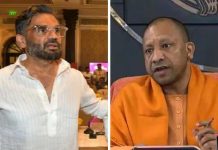
On August 18, 1945, news reports came in suggesting that Netaji Subhash Chandra Bose had died from injuries suffered in a plane crash. The twice-elected president of the Indian National Congress (INC) is believed to have been travelling across Japanese-occupied Taiwan when his plane crashed. 11 inquiries into the accident, the cremation of his body and carriage of the ashes to Tokyo, has confirmed Bose’s death.
In 2016, Prime Minister Narendra Modi declassified 100 Government of India files pertaining to Bose. Among them was a letter allegedly written by the country’s first PM Jawaharlal Nehru in 1945 to former UK PM Clement Attlee. In the letter, Nehru apparently referred to Bose as a ‘war criminal’.

In the letter, Nehru allegedly wrote: “Dear Mr Attlee, I understand from reliable sources that Subhas Chandra Bose, your war criminal, has been allowed to enter Russian territory by Stalin. This is a clear treachery and betrayal of faith by the Russians as Russia has been an ally of the British-Americans, which she should not have done. Please take note of it and do what you consider proper and fit (sic).” The unsigned letter ends with, “Yours Sincerely, Jawaharlal Nehru.”
Did Nehru really call Netaji Bose a war criminal?
No, Nehru never called Bose ‘a war criminal’.
The letter apparently appears in an essay by Netaji’s nephew Pradip Bose in 1998 to the then PM Atal Bihari Vajpayee. The letter can also be found in Pradip’s book ‘Subhas Bose and India Today: A New Tryst with Destiny?’
According to Shyamlal Jain, who was Nehru’s stenographer, contents of the letter are his recollection of what Nehru had supposedly dictated to him in December 1945. Reportedly, Jain was deposed before the GD Khosla commission which was set up in 1970 to look into Bose’s mysterious disappearance. However, the one-man commission did not accept Jain’s testimony.
In Jain’s testimony, he claimed that Nehru dictated the contents of the letter on either December 26, 1945, or December 27, 1945, at Congress leader Asaf Ali’s residence in Delhi. However, historical records suggest that Nehru was in Patna and Allahabad from December 25 to December 29,1945, and Asaf Ali was in Bombay on December 25 and December 26, 1945, reported fact-checking website Alt News.
In 2016, the Indian High Commission in the UK clarified that Bose’s name was never part of the list of war criminals as the list was only drawn up for Japanese and German citizens.
“According to UK’s Imperial War Museum, London as substantiated by the Historical branch of the Foreign and Commonwealth office, UK did not draw up a list of Indian war criminals. Such a list was drawn only for Japenese and German nationals,” a declassified file read.
“According to the information given by the Senior Historian of the Imperial War Museum, even if Netaji’s name had been on such a list, his name would have been removed, following his death soon after World War II,” the file added.
Meanwhile, in a response to an RTI, the Home Ministry on July 31, 2017, quashed all rumours surrounding Bose’s death and said, “After considering the reports of Shah Nawaz Committee, Justice GD Khosla Commission and Justice Mukherjee Commission of Enquiry, the Government has come to the conclusion that Netaji has died in a plane crash in 1945.”
Netaji’s daughter and sole heir Professor Anita Bose Pfaff (77) has expressed her desire to bring the remains of her father to India.
On Tuesday, quoting author Ashis Ray’s article, Congress leader Shashi Tharoor asked PM Modi, “Netaji’s daughter wants his ashes back in India, says Ashis Ray; why doesn’t @PMOIndia, which made such a fuss over Netaji before the last Bengal election, take action?”
Netaji’s daughter wants his ashes back in India, says Ashis Ray; why doesn't @PMOIndia, which made such a fuss over Netaji before the last Bengal election, take action?https://t.co/3sFRiwOdam
— Shashi Tharoor (@ShashiTharoor) August 18, 2020


































